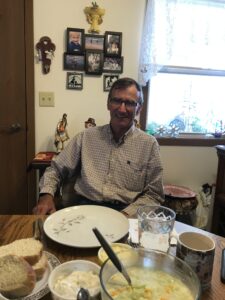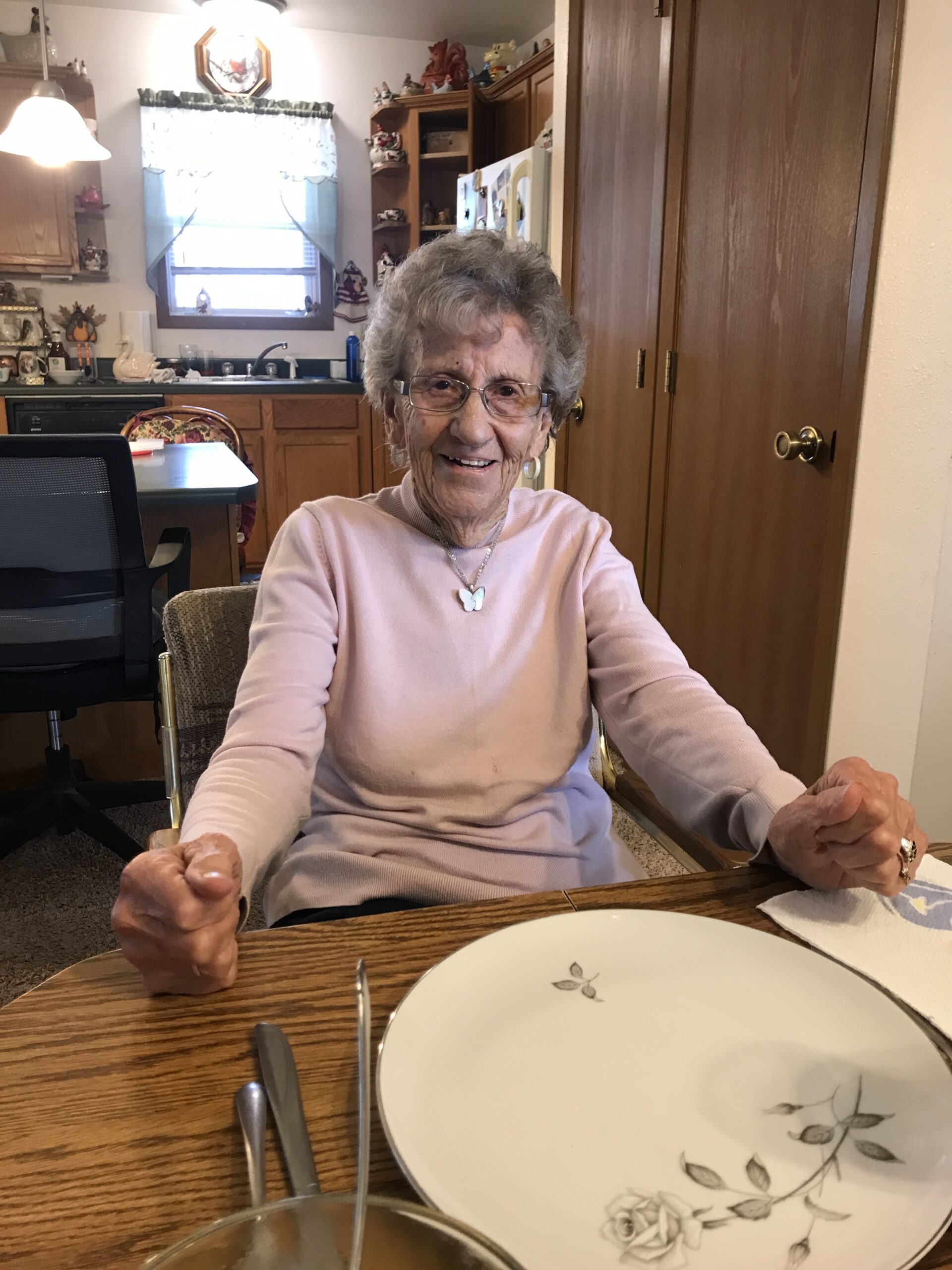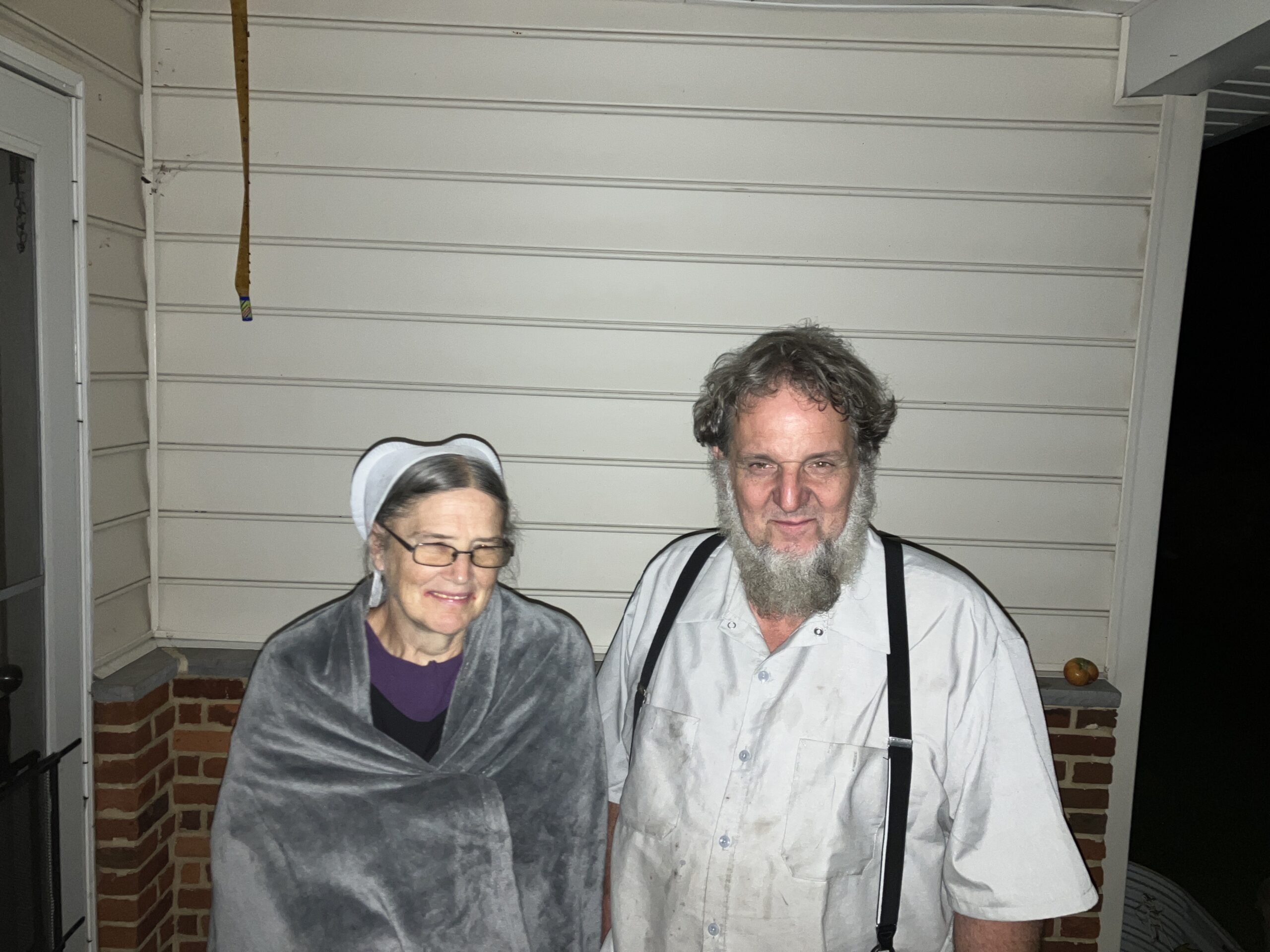Back then, you told your kids to take care of their health, your house and your food. That’s the three things should be your most concern. Everything else should be secondary.
Mary Thomsen is a spry 95, still working every day at the local Community Action center, mostly coordinating food and supply donations to those in need. Her son, Robert, is an equally spry rancher, still working about 9000 acres, limping a bit after an ornery horse kicked him a week or so ago. We talked all morning around their kitchen table in the small town of Martin, South Dakota, and then Mary invited me to stay for a full mid-day meal, including homemade meatloaf and cobbler. Their recollections go back to the depths of the Depression and the “dust years” as they call them up here in South Dakota. Their life lessons about how we can get along today are relevant to all of us.
 “During the 30s my grandpa would not eat breakfast ’till all the kids had enough to eat at times.”
“During the 30s my grandpa would not eat breakfast ’till all the kids had enough to eat at times.”
“Grandma could peel potatoes, you could almost see through the skin. She never wasted anything.”
“We just kind of helped each other get through the day . If this neighbor needed help, the kids would just go over and do things together. People loaned stuff out that they didn’t have. I don’t think a lot of people today realize how hard those people worked. I mean, it was almost a full time job to just feed your family.”
“Our parents didn’t really teach us how to act so much as they just did it by example.”
“It was mostly White people here. We hired one Native guy and his family to help during haying time. I went to high school with Native kids and I don’t remember relations being stressed. Everybody was getting along pretty good here (until there was) outside influence that come in to the reservation at that time. (Robert is referring to the American Indian Movement in the early 1970’s)”
“I had a Native American young guy working for me. We were sitting around eating one day, and we got talking about racism. He said, ‘You know, I’ve never really experienced racism’. And I said, ‘Do you know why?’ And he said, ‘No’. I said, ‘It’s your attitude. You’ve got no preset thoughts put in you. You just want people to respect you.’ That’s what it boils down to. It doesn’t matter what race you are, right? If you’re going to disrespect me, we probably aren’t going to get along. But if you want to respect me, I will respect you.”
 “My dad taught me to never say something negative about another person’s piece of equipment.”
“My dad taught me to never say something negative about another person’s piece of equipment.”
“After high school, I didn’t go to college. I wasn’t home one day and dad was paying me a wage and he didn’t think I was doing what he was paying me for and he finally said, if you’re gonna stick around, you’re gonna be on a percentage. If I make money, you make money. And if I don’t make money, you’re not gonna make any money.”
“It worries me the way the world thinks about agriculture. It’s a good way of life. I want to see my grandkids stick around, but it’s going to be very hard for them. The big corporation money is just too much to compete with.”
“Our political parties need to work together for the betterment of the people and start respecting another person’s opinion. You know, listen to it, and see what you can pick out of it. We got to find some center ground instead of both sides trying to tell the other ones how they need to live.”
“We’re losing the interaction of you and me talking and looking each other in the eye. This one neighbor I have, he got mad and he texts things that I’m sure he wouldn’t say to me face to face. I don’t reply to it. People will spout off to you over that phone but they wouldn’t if they looked you in the eye.”
“If we’re going to get along, we’ve got to have interaction, personal interaction that teaches me how to respect you. We’re not all going to view things the same way. But we’ve got to coexist.”
“The whole country’s priorities are out of whack. When ballplayers can make millions of dollars a year, and the guys that are supplying your food out here have a hard time making it, there’s something wrong. And we’re going to pay a big price for it someday. We found out during COVID, we can do our without entertainers, but we can’t do without food and water.”
“Back then, you told your kids to take care of their health, your house and your food. That’s the three things should be your most concern. Everything else should be secondary.”













Leave A Comment